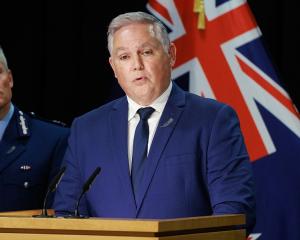

We know educational achievement in New Zealand is falling. And the education system seems to be designed so that parents have no idea how their children and their schools are performing.
Traditionally, we have punched above our weight for a little country at the bottom of the world. Fast forward to the current situation and we are falling in our world rankings.
When we did better we had arguably a clearer idea of what we wanted from teachers and schools. We expected them to tell us how children were doing and whether the teachers thought the children should do something differently to improve their individual achievement.
We had School Certificate and University Entrance, and it was clear what was needed to pass to go on to work in various careers.
Now we have no idea what might be required and when.
Teachers are expected to perform the impossible by teaching a wide range of subjects, some of which have no useful curriculum support. They are supposed to teach these things in a way which makes everyone feel accepted and valued, and excites the interest of the children on a constant basis.
Recently, 60% of principals the Education Review Office interviewed described graduate teachers as not ready to be in the classroom.
And that this is particularly so for those being trained at universities.
It is anyone’s guess what suitable expectations of parents would be under the NCEA framework.
It is also difficult to tell if a school has found a way to work through the issues and turn out usefully educated students. We do know that Māori and Pacific Island children achieve less.
Schools are funded for each pupil equally, with an add on for the "deprivation" of the population where the schools are, an isolation factor, and extra money for smaller schools who cannot use economies of scale.
Currently for some there is also the funding for school lunches, which eclipses the other add-ons significantly. The funding model is intended to level the playing field, but it does this by rewarding problems and taking no account of how good a school is at solutions.
Charter schools are criticised as being not the New Zealand way, since we are pretending that all publicly funded pupils are receiving a similar and sufficient education.
The NCEA system makes it difficult to compare schools. So that all pupils feel a sense of success, schools encourage pupils to pick and choose areas where they can be successful in achieving credits of whatever value.
However, a comparison of University Entrance results in Otago produces a disturbing picture.
Successes at UE level in 2022 varied from a low of some schools, with under 20% achieving UE, to a high of a school with 89% achieving this level. Pretending that parents would accept this variation if they knew about it is unhelpful.
UE requires passes in crucial study areas around numeracy and literacy.
These statistics suggest that we are not confronting the reality around the lack of solid, useful foundation-based learning for some schools.
If we are honest about the effect on our children on achievement, or lack thereof, of internationally acceptable educational standards, we will struggle to lift our game.
We could start with Otago. We could look at why some schools are doing so much better than others.
It is not explained easily by deprivation and isolation. Graphing these against UE achievements for our Otago high schools does not produce a fit.
We need to stop pretending all schools can manage well with the current system. We need to remove the barriers for teachers in achieving success for themselves through the success of their pupils and to having frank discussions and feedback with parents.
We need clear and achievable academic standards.
We need to be open to valuing the difference a school makes to its pupils, not the problems it has.
And to rewarding teachers who are making those differences. And even schools which can cajole their pupils into turning up regularly.
We also need frank discussions with those who are teaching the teachers but not providing them with the skills they need to be ready for classroom success.
We can then measure the success of any measures taken to address the lack of success and inequities of outcomes.
Meanwhile, I have available for any members of Parliament — who are happy that the current system works and no-one needs to try experiments around charter schools — a list of three Otago high schools which are likely to give a less than one-in-five chance of achieving UE for their children.
We have no idea why some outcomes are so different from others.
But the schools and pupils deserve to know and to have the government provide what is needed for success.
• Hilary Calvert is a former Otago regional councillor, MP and Dunedin city councillor.












